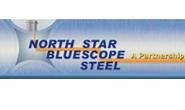Market Segment

August 21, 2017
Great Year for BlueScope Steel
Written by Sandy Williams
BlueScope Steel, the parent of North Star BlueScope, will have a change in command. Mark Vassella has been appointed the new managing director and chief executive officer following retirement by outgoing CEO Paul O’Malley effective Dec. 31, 2017. O’Malley has been at the helm of BlueScope Steel the past 10 years of his 12-year tenure.
Vassella currently serves as Chief Executive of BlueScope Australia and New Zealand and was instrumental in the return of the Australian steel business to profitability.
“He has run all BlueScope’s buildings businesses in North America, leading the integration of our acquisitions, and sat on the board of North Star (the leading minimill in North America),” commented BlueScope Chairman John Bevan on Vassella’s appointment. “He has delivered outstanding performance and will make a significant contribution as global leader of this great company.”
The change of leadership comes as BlueScope reported doubling its net profits for 2017 to AUD $715.9 million (about $568 million U.S.). Sales revenue of AUD $10.62 billion (about $8.42 billion U.S.) was 17 percent higher than FY 2016 due to 100 percent ownership of North Star during FY 2017, increased shipping volumes in BlueScope’s building segments, higher domestic and export prices and stronger domestic demand for BlueScope’s Australian steel products.
North Star BlueScope, a minimill located in Delta, Ohio, reported pro-forma sales revenue of U.S. $1.28 billion in FY 2017, a 34 percent increase over the prior year. BlueScope acquired Cargill’s 50 percent share of North Star in October 2015; actual FY 2016 results included four months at 50 percent ownership and 8 months at 100 percent. The pro-forma figures show results based on theoretical 100 percent ownership for both years. Production increased by 3 percent in 2017 to 2,141,300 metric tons and shipments increased 4 percent to 2,093,000 tons.
Spreads in 2017 improved significantly for North Star, ratcheting up to $332 per ton from $237 per ton the prior year. Steel shipments increased to 2.09 million metric tons from 2.02 million tons in FY 2016. The mill operated at 100 percent capacity utilization compared to the U.S. industry average of about 70 percent.
North Star sales have benefited from strong demand from automotive, as well as increases in the construction sector. End customer segment mix is 50 percent automotive, 35 percent construction, 5 percent agriculture and 10 percent manufacturing/industrial applications.
BlueScope expressed uncertainty about the U.S. steel market and expects spreads to be $30 per ton lower in 2018. Higher scrap prices will leave steel prices chasing raw material prices for a while, said O’Malley.
In the U.S. buildings segment, O’Malley is seeing a change to “lower performing, lower capability business with potentially a bit lower margin.”
“We have two brands in the U.S.,” said O’Malley, “We have a very premium brand and we have a good brand and there is a bit of a shift from the premium brand to the good brand. The U.S. economy has been growing really well, but with the confusion as to where the country might be going, people are being a little bit more circumspect as to how they spend their money.”
Steel prices are not expected to be impacted by Section 232 action in the current half, but will be closely watched. O’Malley said that the U.S. administration has been very open to engagement with Australian officials about the importance of U.S./Australian trade. Local senators have shown support for North Star BlueScope and its employees. Some action on 232 is expected, said O’Malley, but the longer it takes, the less action there will be, in his opinion.
Besides its profitable North Star steel mill, BlueScope is concerned how trade restrictions may affect its Steelscape steel-coating facilities in Washington and California that depend on imports of steel. “We’re a more cost competitive supplier of steel to Steelscape than any of the U.S. steel mills, which is for the benefit of West Coast, California, Oregon and Washington businesses,” said O’Malley.
The shortage of electrodes for electric arc furnaces is not impacting production at North Star due to careful management of consumables, although the situation is being watched. North Star is carrying more stock than usual as a precaution, but has good contracts going forward. The issue may be more cyclical than structural, said the BlueScope executives, comparing it to the rolling mill roll shortage in 2007. “The moment there’s a perception of a shortage of a key consumable within a steel plant, it’s like stocking up the cupboards. You’re actually buying all the cans you can and putting them in the cupboards.”







